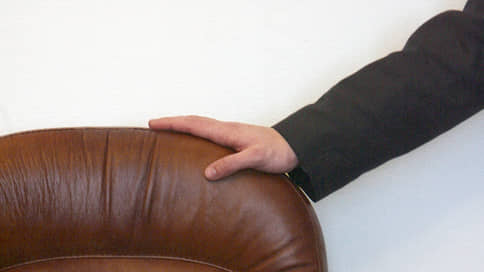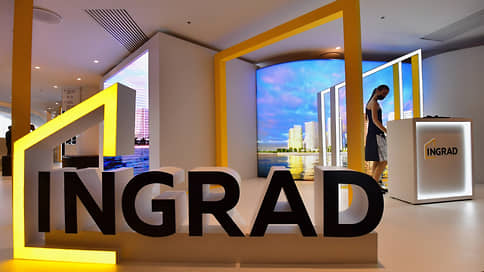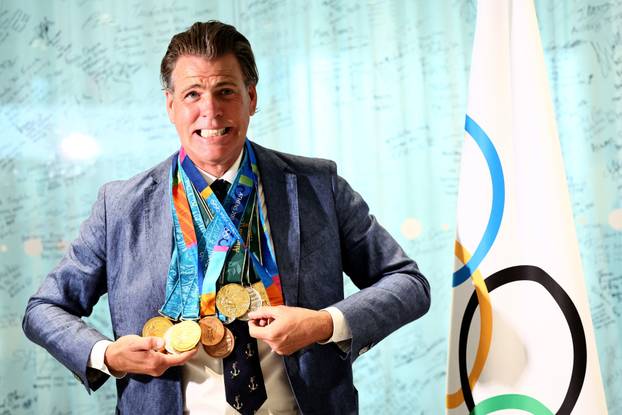Yusuf Alekperov left the capital of the EkTO holding

The son of the ex-head of Lukoil Vagit Alekperov Yusuf ceased to be the founder of EkTO holding with assets of 62 billion rubles. His share passed to the personal fund of the SUE. According to lawyers, a change in the structure of ownership can reduce the risks of sanctions, will allow tax benefits and ensure flexibility in management. In less than a year, the number of personal funds in the Russian Federation increased six times.
Yusuf Alekperov, the son of the founder Lukoil Vagit Alekperov (Forbes estimates his fortune at $ 28.7 billion), has left the capital of the Ecto investment holding, and follows from the Unified State Register of Legal Entities. The founder of 100% of ECTO LLC at the end of April became the personal fund of the SRI, created in March of this year. Konstantin Sanin, who has been headed by ECTO since 2019, has been appointed manager of the Fund. Mr. Sanin did not answer the questions of Kommersant, they also did not provide a comment in ECTO. It was not possible to contact Yusuf Alekperov.
According to one’s own data, under the control of ECTO, assets worth 62 billion rubles. The total turnover of companies is estimated at 28 billion rubles. Among the assets are the Western Petroleum Transporteishn railway operator, a 50% Lucavto car dealer, a PLAN B Energy drink brand, sold at gas stations, including Lukoil, and on the Magnit network, etc.
Earlier, ECTO included the oiltehteh oil company, where 49% belonged to Lukoil through Lukoil-Western Siberia. In January of this year, Vellteh got into the SND List. Now, according to the Unified State Register of Legal Entities, 25.5% of the company are owned by Nikolai Krylov and Elena Myova. The owner of the rest of the share is not disclosed. At the same time, in April, the personal fund of the SEV in April was created by VALL LLC with the main activity – the provision of services in the field of oil and gas production. In the « Weletekh » « Kommersant » did not respond.
Yusuf Alekperov was also included in SND List in January of this year. The partner of the Law Firm Alimirzoev and Trofimov, Ilya Aleschev, says that the change in the structure of the Ecto possession may be associated with the desire to separate Russian assets from the founder that has fallen under personal sanctions. According to the White Stone partner Roman Lobanov, the transfer of assets to a personal fund can help reduce the risks of blocking accounts, assets or transactions associated with persons that have fallen under sanctions. For example, the share of Igor Kesaev in Mercury Retail, which controls the Krasnoye & White ”and“ Bristol ”(see Kommersant on December 21, 2023), was transferred to the personal fund. But the partner of FTL Advisers, Maria Doll, indicates the absence of a confirmed practice of “effectiveness” of such a structural option. According to her, historical relationships of a person with an asset can be interfered.
You can establish personal funds in Russia since March 2022. In such a fund it is necessary to transfer property with a market value of at least 100 million rubles. Roman Lobanov notes that in addition to a high level of confidentiality, the transfer of assets to a personal fund allows you to obtain tax benefits, including a preferential income tax (15% for passive income), as well as flexibly control assets, including through the setting of property distribution conditions. For those who maintain presence in Western countries, the transfer of Russian business to a personal fund can reduce the risk of closing accounts in foreign banks, adds Mr. Aleschev. The partner and the head of the practice of tax law and the management of private capital “Melling, Enter the Login and Partners” Sergey Krykov says that personal funds are becoming a good alternative to foreign trusts. According to him, like trusts, personal funds can perform different functions, for example, to be a family investment fund, a family bank, a family pension fund, etc.
On May 5, 2025, 248 personal funds were registered in the Russian Federation, Maria Kula notes. According to her, ZPIFs exists many times more, but the number of personal funds has grown six times less than a year: “Rarely what kind of tool with such a“ high entry threshold ”can be compared in the take -off of popularity.” Partner of the Pen & Paper Bar Association, Sergei, explains that ZPIF, unlike a personal fund, is a property complex. According to him, the founder ceases to be the owner of the property and becomes the owner of Pai. In addition, the process of creating a ZPIF is more complex and costly, including in terms of subsequent content, and can stretch for a year, and the term of registration of a personal fund is three days, Mr. Teacher notes. Ilya Aleschev adds that ZPIF only partially solves the problem of ensuring confidentiality and the management company is obliged to manage the property of ZPIF on the basis of an investment declaration, and not the instructions of the shareholders.







